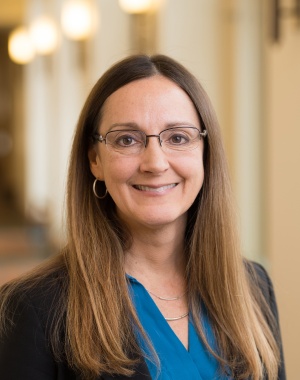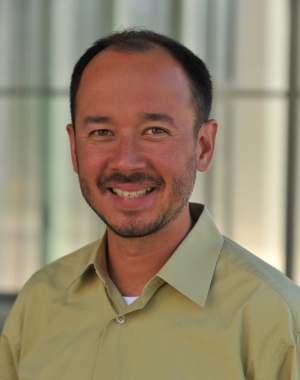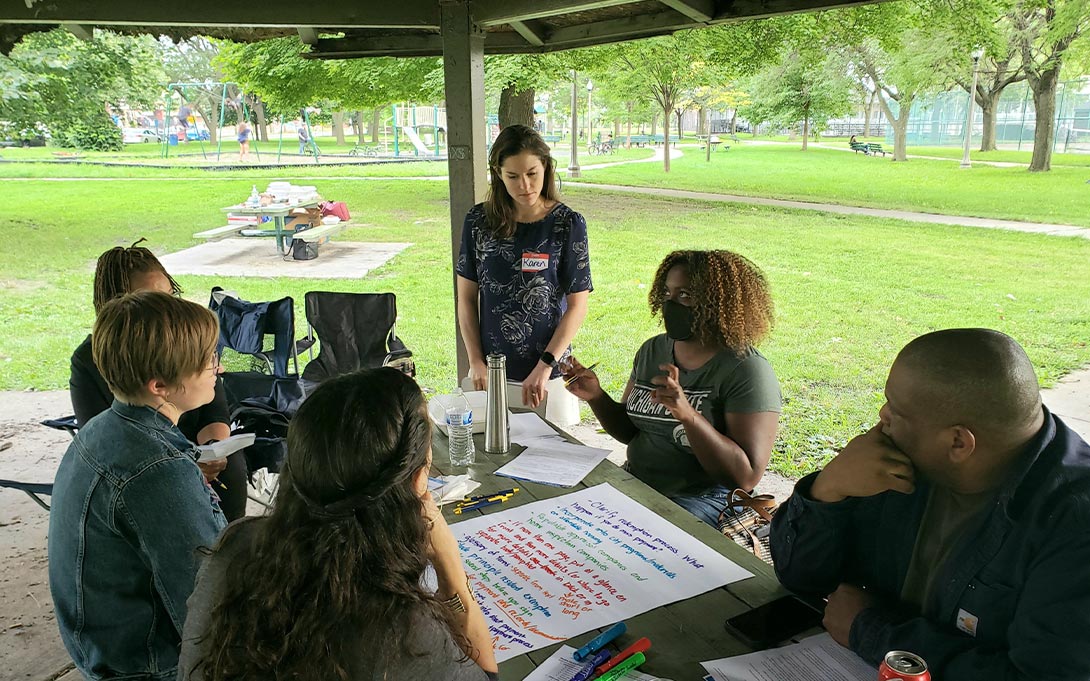
By Rebecca Cohen (MPP '09)
An essential ingredient to developing good policy is understanding what people want and need, and how they experience their lives," says Elisabeth Gerber, Jack L. Walker, Jr. Collegiate Professor of Public Policy and director of the Program in Practical Policy Engagement. "At a really basic level, this is the government's job. A lot of people don't have an opportunity to articulate their needs, and they deserve to be represented in the policies that get made." But it's not always easy for policymakers to figure out what constituents need.
Many Ford School faculty formalize partnerships with local, state, federal, or international government agencies, local nonprofit community organizations, employer intermediaries, or foundations. Faculty lend analytical knowledge and resources to look closely at policy questions, who is affected, and how. And, many of the partnerships provide mission-critical, hands-on learning to help prepare graduates for a future in public service or policy research.
"The University has these incredible resources," says Gerber, "and we look to use them to benefit people and communities who don't have resources. But we also get much benefit: We learn about the world and students get valuable learning about improving quality of life. Everything we do with communities has to be mutually beneficial. That's the biggest thing." This doesn't always happen. Universities are often criticized for "researching and running"—leaving behind communities that haven't gained any real benefits. Gerber; development economist Dean Yang; Afton Branche-Wilson MPP '17), assistant director of community initiatives at Poverty Solutions; and Dave Waterhouse, interim co-director of the University of Michigan's Edward Ginsberg Center for Community Service and Learning weigh in on how universities can authentically engage with communities, build trusting partnerships, and earn win-wins. Of mutual benefit Academic-community partnerships for better public policy
Keys to better partnerships
1. Look for mutually beneficial goals, and always be communicating
Much of Dean Yang's research in developing countries is made possible through partnerships with international agencies and local governments. He tells his graduate students to look for overlap between interests. "Our goal as researchers is to push forward the frontiers of knowledge for the broader use of society, whether domestic, international, or local. There is a power dynamic being from a rich institution and a rich country that is to the advantage of the researcher, especially when we work in developing countries. We need to be really careful not to exploit that leverage. We need to look for ways that the research will genuinely benefit our partners."
Even with consistent, ongoing communication with partners, there can be challenges. A project may take longer than anticipated, or the research design may be difficult to maintain. Yang, who specializes in randomized controlled trials, explains that "When a treatment works well, it is tempting for the partner to want to expand it right away to the control group. This can harm the research and can end up compromising the ability to assess the impact."
2. Be curious and flexible: Work together to ask the right questions
Ford School researchers emphasize the importance of asking broad, open-ended questions.
"It's easy to ask survey questions in the wrong way," says Elisabeth Gerber. In addition to her other roles at the Ford School, she co-leads the Detroit Metro Area Communities Study (DMACS). DMACS is a city-wide panel survey that follows a representative sample of 2,000+ Detroiters and is designed to help inform policy.
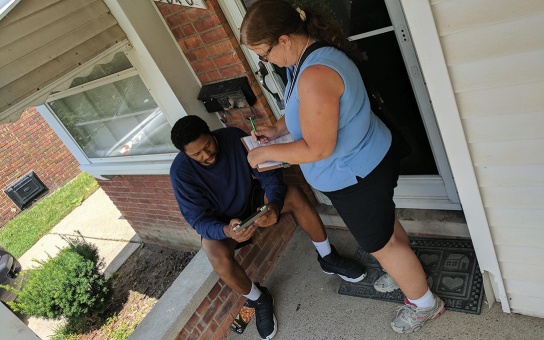
DMACS researchers partner with city government, philanthropy, nonprofits, and community-based organizations to co-develop survey questions. Partners also help share the analysis so it gets into the hands of policy decision makers. Recent surveys have asked how Detroiters are dealing with COVID, and since the same questions are being asked again and again, the researchers can see how the issue has evolved.
"DMACS asks in-depth questions no one else is asking. It would be a failure if it sat on a shelf," Gerber says.
Afton Branche-Wilson recognized that over the last decade Detroit residents have been engaged in talking about economic mobility. This prompted a research approach for the Investing in Us project that emphasized solutions and ideas that come from Detroiters.
"These issues have already been discussed at countless city meetings, design sessions, and neighborhood meetings. We wanted to respect the time and effort Detroiters have already spent to express their viewpoints, and we opened up our ears to what has already been said. As researchers, we aren't putting our recommendations first. Ultimately, we want to be doing work that is relevant for the organizations creating policy."
Branche-Wilson and her team reviewed hundreds of public comments and reports. With the help of block clubs and other local groups, they conducted focus groups in neighborhoods not initially represented and dug deeper into the results. Open-ended conversations, where residents could bring up whatever was on their minds, were more in-depth and brought new solutions to light.
"Our report is not meant to be a static conversation," she says. "It was well-received as a tool to refer back to and we hope to replicate the research to see how things have shifted over time."
In an international context, Yang has also found broad conversations to be fruitful. In a 2012 research project in Malawi, he and coauthor Jessica Goldberg (PhD '11) spent several weeks asking microfinance operators what would help them extend more loans and services to vulnerable rural residents and keep the banks sustainable.
"When you aren't specific from the outset, the conversation is guaranteed to be of interest to them. We asked questions like, 'What are the biggest constraints on sustainability?' or 'Where would you like support?' I still remember the conversation where someone had the idea of fingerprinting borrowers to streamline the loan application process. It was unexpected." Yang recognized it as a promising idea and tested the concept with a randomized trial. Results found personal identification can improve client repayment and address a significant barrier to providing credit in rural areas.
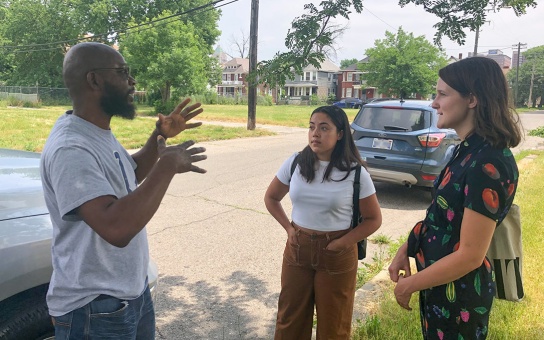
3. Approach communities with humility and self-awareness.
Outside perspectives and tools can be of great use to communities. But for university researchers, being good partners starts with understanding that you are just that— outsiders. Ford School researchers emphasize it is important to understand who you are and how others perceive you—and to approach community partners with humility.
Dave Waterhouse says students, faculty, and staff can learn how to be better partners. "So many of our students are working with people in communities who have different lived experiences. Through self-reflection students can be better prepared to identify any biases they might carry with them, and be more sensitive and open."
Situated in the U-M Office of Student Life, the Ginsberg Center empowers students and supports faculty and academic program staff to better connect with community organizations. The center provides consultations and offers up to 100 workshops a semester and resources to help hone these skills.
"We try to directly address 'white savior' or 'founder' syndrome. Learning how to listen and directly engage with partners helps build a more complex understanding of the issues. Just because it seems like a good idea on paper, it doesn't mean it will be successful or welcomed by community members."
Collaborative work with community partners is not easy. "Trust is built through having some of the difficult conversations," says Waterhouse.
Partnerships often take more time than going alone. But, as Branche-Wilson concludes, "When you involve communities, the final product is better in so many ways."
More in State & Hill
Below, find the full, formatted fall 2021 edition of State & Hill. Click here to return to the fall 2021 State & Hill homepage.
